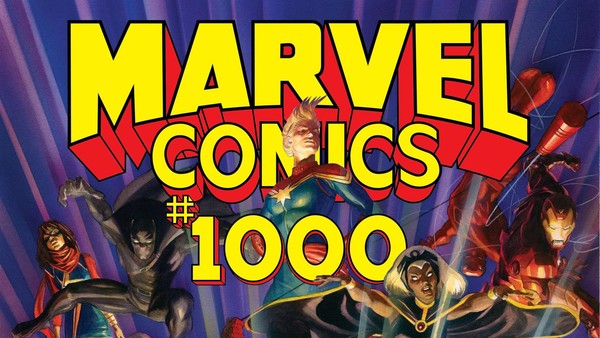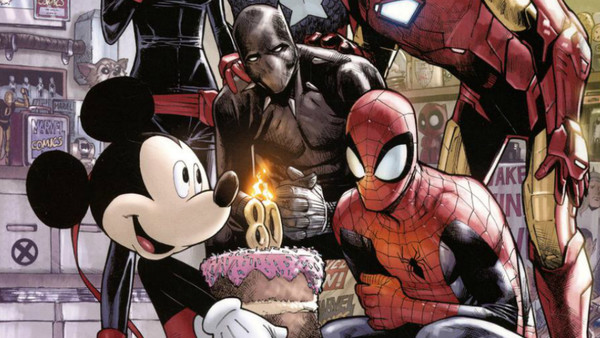Why The Comics Industry Needs To Change (Before It's Too Late)
2. How Marvel Take Advantage Of The Direct Market... For The Worse

If an archaic ordering system wasn't bad enough, comics readers also have to contend with dubious tactics from some of the big publishers, none more-so than Marvel.
Depending on your familiarity with the industry, you may or may not be aware of the comic book crash that occurred in the 1990s. This developed for a myriad of reasons, but was primarily driven by an intense 'speculator boom' that occurred at the beginning of the decade. Speculators drove to comic book stores in the hope of finding the next Action Comics #1 or Amazing Fantasy #15, a comic that could, in the future, stand to net them a tidy sum. Marvel and DC duly reacted, relaunching comics with brand-new #1s to capitalise on the flood of new buyers. Other such gimmicks designed to get speculators to buy more comics soon emerged, with everything from character redesigns to shiny foil variant covers being deployed to ensure sales kept rising.
Eventually - and to no one's surprise - the speculator bubble burst, and very nearly caused Marvel to cease as we know it. It would stand to reason that such a chastening event would probably make publishers rethink their strategies, and while it's true that the gimmicks of the nineties are long dead (most of them), Marvel in particular hasn't been able to kick all their worst habits from that decade.
Relaunches and variant covers are the two biggest issues currently, and while both aren't just a Marvel problem, they're certainly the publisher who utilise both tactics the most. Relaunches have the adverse effect of putting off longtime and new readers (no doubt due to anxiety over investing in a series that may not even matter in a year's time), with Marvel seemingly preferring the short-term uptick in interest over retaining a long-term audience on certain books.

Variant covers, meanwhile, artificially boost the company's sales figures. They don't show the real extent of modern-day comics readership and they divert funds away from where they're most needed, like promotion, or in better compensating freelance talent.
But this isn't even the worst part. Variants alone are bad enough, but Marvel has also developed a knack for introducing 'incentives' for retailers to order more of them. Basically, if a retailer orders X amount of a certain comic, they'll be 'rewarded' with a special variant, encouraging stores to order more stock in the hopes that more speculators - NOT new or long-term readers - may pick it up.
It doesn't take an expert to know that this isn't a healthy strategy. While Marvel should be busy cultivating new readers, the publisher continuously pursues old gimmicks in search of its next short-term hit. If it's not a relaunch, then it's a crossover. If it's not a crossover, then it's a variant. And while all the blame can't go towards the direct market, it's still the case that it enables the aforementioned problems.